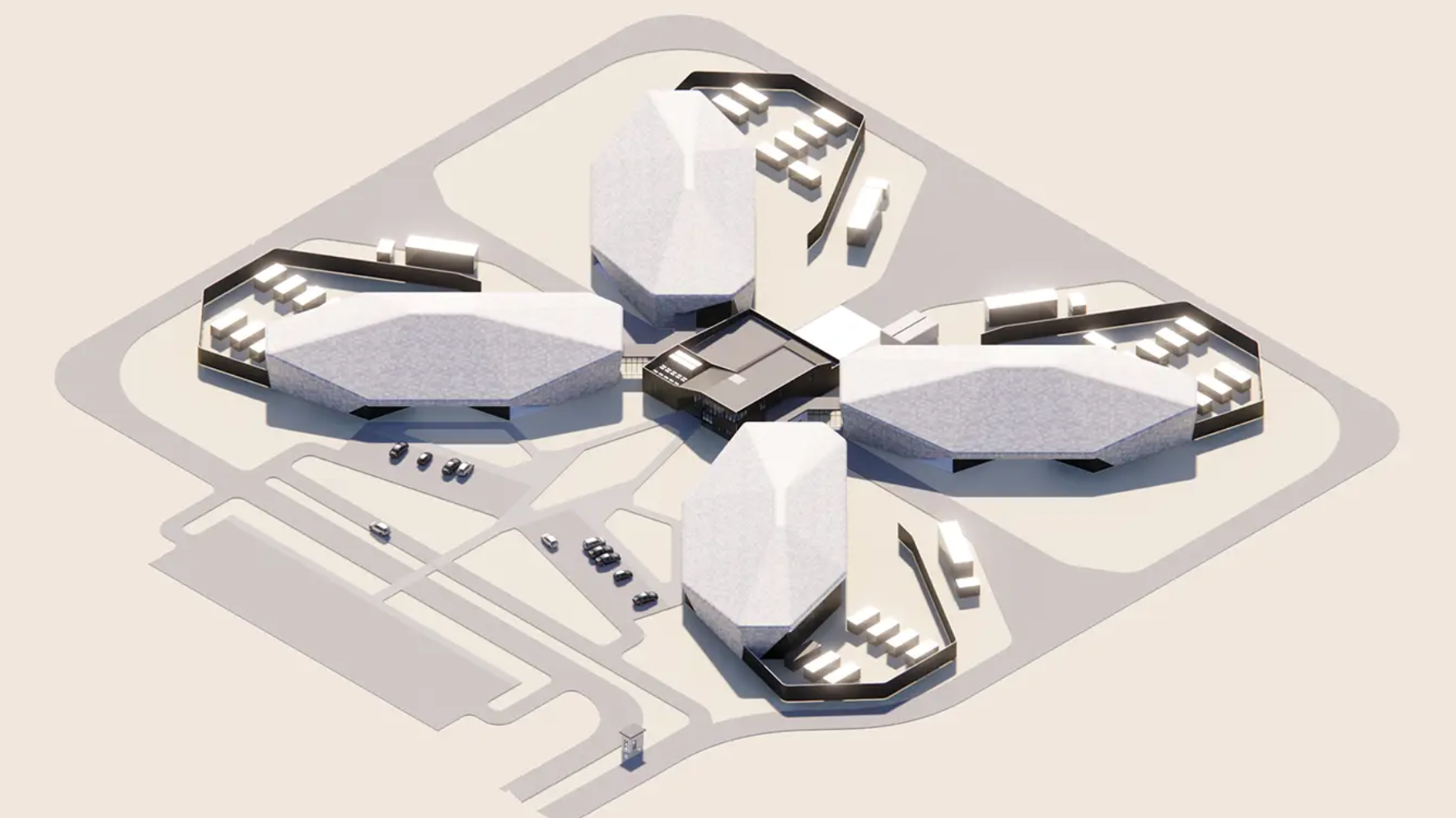
Speaking to The Wall Street Journal, Nanotronics founder and CEO Matthew Putman hopes their CubeFab design will be seen as "a model for the way things should be produced in the future." The CubeFab model involves using modular power switch fabrication units, which come with bundled AI software and hardware to assist manufacturing and, ideally, greatly lower the barrier of entry.
Nanotronics' switch fabrication units start at 1,715 square meters. Four units with a central service cube comprise a proper CubeFab, which requires 7,510 square meters— or ten acres of land. The fabrication is for the switches used to route data center power or invert for electric vehicles, and they are considered an "ugly stepchild," according to Forrester analyst Glenn O'Donnell, cited in WSJ's original coverage.
The Nanotronics CubeFab central service cube is stated to have "some Nvidia GPUs running AI software", automating some engineering processes. The suite for the AI software costs $400,000 to $3 million based on sensor streams and data volume, according to Nanotronics.
The main manufacturing capacity per fab is found in two clean rooms, each 172 square meters, and made of materials with inherent ESD protection, like coated aluminum.
For shipping purposes, modular fab pieces can be fit on a 40-foot shipping container or flatbed truck. But even once you've paid for the fabs, regulatory issues may arise due to high power needs. Each fab is 2.7 megawatts a day, scaling to 8.7 consumption at four fabs. So, not all locations will be ideal for running these modular CubeFab setups.
So, yes, you won't be building CPUs or GPUs with these CubeFabs anytime soon. However, the big bursts of funding going into things like the CHIPS Act may still improve stateside expectations for manufacturing.
At the end of the day, this being successful could help a lot of entities who otherwise couldn't enter the semiconductor manufacturing game make their way in— and the U.S. isn't the only country set to benefit. Most of Nanotronics' current business is international, and their business model is targeted at universities and large businesses to have onsite chip manufacturing.







